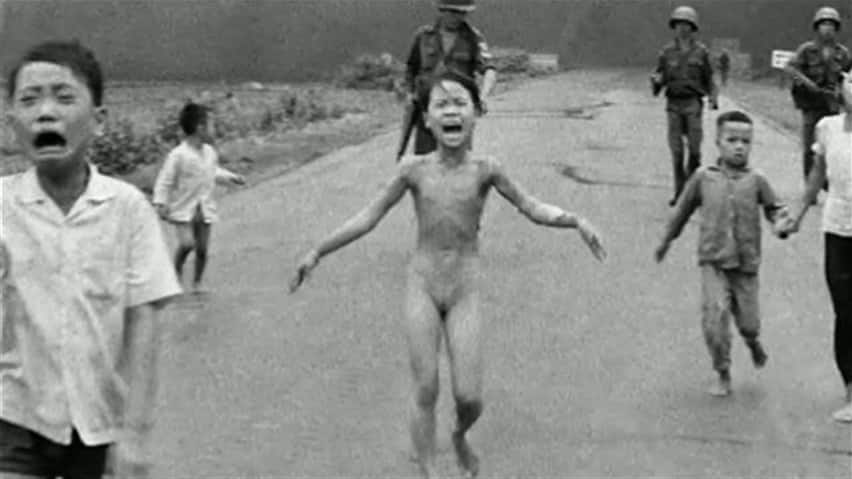- You’d Be Speaking German Right Now If…
- Don’t Be The Kaiser or the Fuhrer
- The Art of War (Sort Of) Applied to Learning A Language: Logistics, Supply Lines and Force Concentration
- War! What Is It Good For?
- The Forever War and The AJATT Way
- What Being In A Forever War Means For You
- The Myth of Invincible (Asian) Languages
- How (and Why) to Make and Use Entropy Bombs
- Entropy: Fight the Power
- How and Why the Principle of Proportionality Works
- You’ve Got 99 Million Small Problems — Not a Big, Single One
- Remember That You Are, Were and Will Always Be Human: Infinite in Possibility and Finite in Action
- How Learning a Language is Like Conquering a Country (But Not in the Way You’re Thinking)
- Why America Doesn’t Win Wars Any More and What (Ironically) That Can Teach You About Learning Languages
- The Art of the War of Learning Languages: Sun Tzu on Immersion
- Fight Battles, Not Wars
- How to Worry Correctly
For starters, let me put this out there, just so we’re clear: I am a pacifist. I think armed conflict is almost always some combination of immoral, unnecessary and/or stupid 1. True, literal self-defense would be the only exception, which is why, in the modern world, most countries try to falsely 2 dress up offensive actions as defensive ones: indeed, as the second half of the twentieth century kicked off, what were once (during simpler, franker periods of history) called ministries of war turned into ministries of defence 3.
The object of any rational, offensive war is not die for one’s country and it’s not even to get other people to die for theirs. The object of such a war is not to destroy one’s enemy (this is wasted effort — waging war costs all sides lives and money): it’s to take away their stuff, their treasure. As it turns out, though, the one treasure that is more valuable than all the land and minerals in the world, in the entire Solar system, is ideas. And you don’t have to kill or burn for those.
But human capital is a tree of slow growth. Physical resources — land and minerals — are worth money right now, so the temptation to go for them directly remains understandably strong.
So, yeah, I’m a pacifist. War is stupid. And so, to a lesser extent, is sports. But both are big sources of valuable analogies and metaphors that we can profitably apply to our small lives and actions.
Learning a language is like cleaning a room is like climbing a mountain is like fighting a war is like any “adversarial” interaction where you’re juxtaposed with a real or virtual external agent: for one thing, if done right, the exercise should be fun, easy, short and bloodless — kind of like that time when Slovenia broke free of Yugoslavia (I love how much this seems like the setup for a Family Guy cutaway gag). If done wrong, however, the results are too horrible to describe in words and too disturbing to display in pictures (even carefully framed and heavily sanitized ones). 4
Right now, you’re going: “what the actual f— is Khatzumoto talking about?”
Chill, Winston. Let me ‘splain.
You see, war isn’t actually about combat. War movies are about combat. War in history class is (mostly) about combat…and borders. Actual war, however, is about logistics 5…and boredom. From the Bronze Age to the Smartphone Age, we consistently find that about 90% of military personnel are non-combatant support staff, and about 90% of field deaths 6 are due to infectious disease, not combat 7. Logistics make and break every fighting force. This is one of those things that’s probably going to be true forever; the closest thing to an eternally true statement outside of mathematics. Not even cosmology can compete. Logistics and arithmetic are it, mate 😛 .
The US military isn’t the biggest in the world. Pound for pound, dollar for dollar, it probably isn’t even the best 8. But it is, overall, the best — by far and without question. Why? Not because it’s good at making things or people blow up, but because it’s the best at getting things to where they need to be — moving the right things to the right place at the right time. 9
OK, I’m getting a bit out of my depth here (you’re all: “getting?! You STARTED out of your depth”), because I know even less about this kind of stuff than your typical reader of Armchair General Magazine (which is an actual magazine, BTW, just so you know (lol))
My point is this.
When faced with a language, a mountain, an opponent, or a dirty room, it’s tempting to do two things:
1) Feel crappy and overwhelmed by the sheer size and scale of the project, of the “opponent”.
2) Try to fight the opponent everywhere all the time at once ‘coz you gottagetitdonenow — to spread your forces and energies across the entire “battlefield”, as it were
These are both bad things. And they belong to that class of bad things that are bad not only because they’re ineffective but also because (whether for biological or cultural reasons) we seem to have a tendency to default to them.
No matter how deep or wide the ocean, you can only swim it one stroke at a time. Even if you’re one of those butterfly meatheads. One at a time, bro. It thus behooves you to focus almost exclusively on the tiny cuboid of ocean you’re dealing with right now. No past, no future: now.
This is a form of force concentration: “establishment of a…[“]base area” by concentrating resources on a single geographical area until dominance [is] achieved…After this…carefully define…regions to be individually attacked again with…more focused allocation of resources.” [Emphasis Added] [Force concentration – Wikipedia]
Force concentration. You amass your “soldiers” and “supplies” at pivot points that matter, and let them go to town. Have them fire at Will Smith (this is an old Independence Day joke from the 1990s…you kinda had to be there).
If you think about it for more than ten seconds, this is essentially what a timebox is: a temporal force concentration (as opposed to a spatial one). When we timebox, we give up on the idea of total war and total victory and settle for partial victories and limited objectives. Partial victories are, in my estimation, the only kind that are possible, especially for the small and the weak, that is, individuals like you and me. Partial victories are all we have. As it turns out, though, partial victories are all we need.
So we’re “settling” for less than perfect; we’re exchanging tabletop optima (机上の空論) for true, real-life good-enoughization. “Good enough” is better than nothing. Infinitely better. Not only that, it’s actually pretty awesome in its own right. Is it perfect? No. Nothing ever is. In the end, though, we’re actually getting a way better deal than if we’d held out for perfection (estimated arrival date: two thousand and never).
Your victories are partial and your objectives are limited, but that doesn’t stop them being interconnected or interrelated (not simultaneous, just mutually reinforcing). For example, I have learned from bitter personal experience that it never works to try to “bunch” errands together for efficiency. It just doesn’t. On paper, it makes sense, but raw, lived reality has other plans. Do one thing at a time. Win one victory at time. Let one victory feed into the next.
Do things that are fun and important enough that quality can beat quantity. You shouldn’t need to watch thirty movies simultaneously to enjoy yourself; you shouldn’t need to accomplish three things at once to be productive. Just as one good movie at a time should be enough to entertain you, one worthy errand at a time should matter enough (should contain enough significance) to warrant doing on its own. All by its lonesome.
Instead of hitting two birds with one stone, or chasing two rabbits and catching neither, chase one rabbit, catch one rabbit, eat that rabbit and then use that energy to catch more rabbits. Maybe make you rabbit farm. Or maybe you go catch a bison, because nobody wants to suffer rabbit starvation.
Do less. Do more of less. Spend more energy on fewer things.
You don’t try to have good sex simply by maximizing the surface area and cavity volume you cover and occupy.
You don’t try to win by covering the battlefield (or, if you do, you shouldn’t; you should stop doing that). Instead, you concentrate overwhelming amounts of power on small places that count, and you win there (because you’re so overwhelmingly awesome) and then you move on.
You don’t win street fights by hugging people (“cover more surface area!”). You win by avoiding plebs and not getting in street fights in the first place. Then, if you somehow got in, you win by getting out as fast as possible — preferably by running away: running is the ultimate martial art. And if that doesn’t work and you’re still involved, then you win by going for weak points. Crotches, joints, knees, angles, eyes, ears, elbows.
You don’t hit your opponent where he is strong (that’s a stupid but all-too-common way of doing things): you hit him where he is weak. Look for the weakness; everything has one; no system is perfect. In learning languages, the (friendly) opponent is the language; his weak points are any words that are easy enough for you to learn and understand given your immediately available tools and knowledge. Pick one — and only one — of these weakpoints and fire everything at it. Light him up. Empty out your entire complement of photon torpedoes.
In other words, it should be like shooting fish, not in a barrel, but in a teacup. The opponent may be bigger and stronger than you, but you only need to be bigger than the opponent’s weakpoint. You only need a local imbalance of force, not a global one. At the weakpoint, you outgun the “enemy” so badly it’s not even funny. Maybe no one can learn Japanese, maybe it’s “impossiburu”, maybe you have to born and raised within visual range of Mount Fuji and eat nothing but onigiri and misoshiru all your life to “truly” acquire it — but anyone can learn one word. Literally any fool (no matter how busy or lazy or depressed) is equal to the task of learning one Japanese word. Corner one of them words and overwhelm it. Repeat enough times and you win the “war”.
You don’t clean a fridge. You clean one shelf as if it were literally the only surface in the entire Multiverse. Then you win. And you use this base and momentum to move on to another battlefield, against another opponent that you similarly overwhelm. Rinse, repeat.
If you want to get “there”, you need to be here now. You can’t be everywhere and win. The only way to be everywhere is to die and be turned to dust. You need to be here now, and play here now, and win here now. And if being here does not appeal to you, then I got news for ya, bub — you won’t get there. “There” is just a sequence of “heres”.
If you love Japanese/whatever language so much, you need to love each individual word you come across. You need to love every moment and every word you’re learning. Love each word MORE than you love the language as a whole. If you can’t do that, not only will you not enjoy yourself, you won’t make consistent, long-term progress and you won’t win. If you can’t love each little piece of Japanese you’re doing, then you don’t really love Japanese — perhaps you love the idea of being considered knowledgeable or intelligent, but you don’t love Japanese. 10 And that’s okay; just admit to yourself you don’t love it (to thine own self be true, right?), so you can go do something else. The world is full of other things to love. Go love them instead. Go love yourself, motherlover (lol).
What is the point of playing a game you hate every moment of? So you can get some gold stars? What’s that — they don’t even give medals for Japanese?! So you’re selling your life (which is what time is: life) away for nothing? And you don’t even get to enjoy the journey? What are you, the Donald Trump of making deals on opposite day?
Notes:
- [The School Of Sun Tzu: Winning Empires Without War: David G. Jones: 9781469769110: Amazon.com: Books] ↩
- “Don’t spit on my cupcake and tell me it’s frosting!” [Judge Constance Harm | Simpsons Wiki | FANDOM powered by Wikia] ↩
- “Historically, such departments were referred to as a Ministry of War or Department of War, although such departments generally had authority only over the army of a country, with a separate department governing other military branches…The tendency to consolidate and rename these departments to highlight their purpose as providing “defence” arose after World War II. In India, for example, “the name of the War Department was found objectionable in the sense that the concept had an aggressive aspect which was inconsistent with Indian traditions”.[1]”
[Ministry of Defence – Wikipedia] ↩ - ([You’re Not A “Learner”, You’re A Logistics Officer | AJATT | All Japanese All The Time]) ↩
- [Amazon.co.jp: Between Flesh and Steel: A History of Military Medicine from the Middle Ages to the War in Afghanistan (English Edition) 電子書籍: Richard A. Gabriel: Kindleストア] ↩
- meaning that, in a way, that things like clean water, toilet paper and handsoap literally matter more than bullets ↩
- that honor, such as it is, probably goes to Switzerland or Singapore or some Scandinavian country…maybe Finland ↩
- Having said that, militaries are government organizations and not private companies exposed to market competition. From a purely logistical point of view, Wal-Mart, Fed-Ex and UPS are likely even better “armies” than the fighting kind. ↩
- A real friend is the kind you hang out with for no reason, even when there’s nothing for you guys to do. ↩




2 comments for “The Art of War (Sort Of) Applied to Learning A Language: Logistics, Supply Lines and Force Concentration”